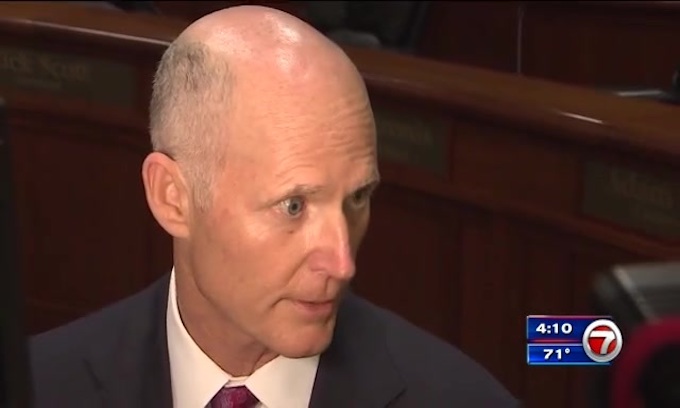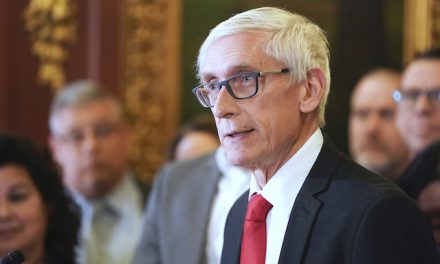(The Center Square) – Opposition to the CHIPS Act is growing after Texas Gov. Greg Abbott urged Congress to pass it and Florida lawmakers expressed opposition to it.
Passing the bill, proponents argue, is necessary to bolster semiconductor production in the U.S. and reduce reliance on foreign production especially in China. When it was initially introduced, the bill would cost taxpayers $76 billion. Since then, it’s ballooned to $250 billion and is full of taxpayer subsidies to multi-billion-dollar companies with no strings attached for how the money is spent, opponents argue.
It also would use taxpayer money to subsidize the construction of these billion-dollar companies’ semiconductor factories in China, the former president of the Texas Public Policy Foundation and now president of the Heritage Foundation, Kevin Roberts, argues.
The U.S. Senate voted Tuesday to end debate on the CHIPS Act, (Creating Helpful Incentives to Produce Semiconductors) Act, which was initially introduced in 2020 by Texas Republicans Sen. John Cornyn and Rep. Michael McCaul and incorporated into the 2021 National Defense Authorization Act.
Texas lawmakers have supported the bill representing a state that leads the U.S. in production and exports of semiconductors and other electronic components.
But Roberts argues, “The answer to the CCP’s malevolent ambitions is not spending billions of dollars to help Fortune 500 companies, with no guarantee those dollars won’t end up supporting these companies’ business operations in China,” and $250 billion will further “contribute to record inflation and increase the already historic cost of living for working and middle-class Americans.”
Roberts told Fox Business News the bill also “subsidizes the construction of semiconductor factories in China.”
“I would not want to be an elected official of either party going back home to my district next month having voted for something that uses my voters’ taxpayer money to go to the construction of factories in China,” he added. “Unless this bill were to have a provision that would prevent that, it really is garbage.”
It also “sidesteps any effort to explicitly bar CCP members or Chinese nationals from national security-related, federally funded research, or from owning land near U.S. national security facilities,” Roberts said.
Last year, the Texas legislature passed a bill signed into law by Abbott banning all contracts or agreements in Texas with foreign-owned companies related to critical infrastructure such as the state’s power grid, water treatment or chemical facilities, communication systems and cyber networks.
The new law prohibits everyone in Texas from entering into contracts with businesses or government officials from “China, Iran, North Korea, Russia, or a country designated” by the Texas governor as a threat to critical infrastructure.
The legislature unanimously supported the bill after Kyle Bass, founder and principal of Hayman Capital Management, testified before the Texas Senate about a Chinese billionaire purchasing land next to the largest air force pilot training base in the U.S.
Sun Guangxin, an alleged former Chinese People’s Liberation Army general, purchased over 130,000 acres of Texan land within miles of Laughlin Air Force base, which Texas lawmakers argued posed a national security risk.
Opponents of the CHIPS Act also argue that multi-billion-dollar companies don’t need the federal subsidies, especially in Texas. Last month, Taiwan-based GlobalWafers Co. announced it was building its first-of-its-kind factory in North America in Sherman, Texas. The month prior, Texas Instruments broke ground on its new semiconductor plant in Sherman after announcing it had committed to a $30 billion investment. Last fall, Samsung announced it was investing $17 billion in a new semiconductor facility in Taylor, Texas.
In January, another $10 million Florida Job Growth Grant money was awarded to expand semiconductor manufacturing in Osceola County.
“Expanding domestic manufacturing capability is important for Florida and our nation,” Florida Gov. Ron DeSantis said. “The strategic investments we are making today will help bring microchip and semiconductor manufacturing back to our state at a time when the supply chains are more fragile than ever. Certainly, we cannot allow this important industry to become captive by the Chinese Communist Party.”
Florida’s former Republican governor and junior U.S. Senator, Rick Scott, who opposes the CHIPS Act, proposed an amendment to ensure no additional production in China is funded by American taxpayers. The amendment also would require companies to not be eligible for federal money if China invades Taiwan, among other conditions. Taiwan currently manufactures 90% of global semiconductor output and has been a target of the Chinese government for decades.
The current bill, Scott argues, “is nothing but a reckless spending spree. If higher inflation from even more spending isn’t enough to make my Senate colleagues pause, consider the consequences of the bill’s weakness on China. At a minimum, the Senate should pass my amendment fixing it.”



















Xi is wielding his influence over Biden—no doubt about it.
IMO he’s influencing the entire DNC!
Democrats either have a vested interest in China or they have been lured into some other affiliation that we buy what the Chinese make, be it the chips, the solar panels, slave made sneakers or the rare earth elements we need to produce our own green products to own canbon footprint while China stoms around like bigfoot.
Wouldn’t it be much better to fund the two chip factories being built in Arizona that were started last year instead of making China richer? Funny how we don’t hear much about these Arizona Factories.
IF anything, WE NEED TO build MORE factories here.. PERIOD.
AND ALL Companies that outsource jobs overseas, Should lose EVERY GOVT CONTRACT THEY HAVE, period.
The tragic part is that successive Congresses have incentivized the American semiconductor industry to use offshore manufacturing more and more. I went to work in the electronics industry when I got out of the Army in June 1971. In 1973 I went to work in electronic component distribution. What Congress allowed was that provided the wafer was “made in America” the wafers could be shipped to Malaysia, Mexico etc for final assembly and returned to the US duty free. Over the years since, our government has made it so that more and more of the manufacturing process could be done far cheaper overseas leaving us where we are today.